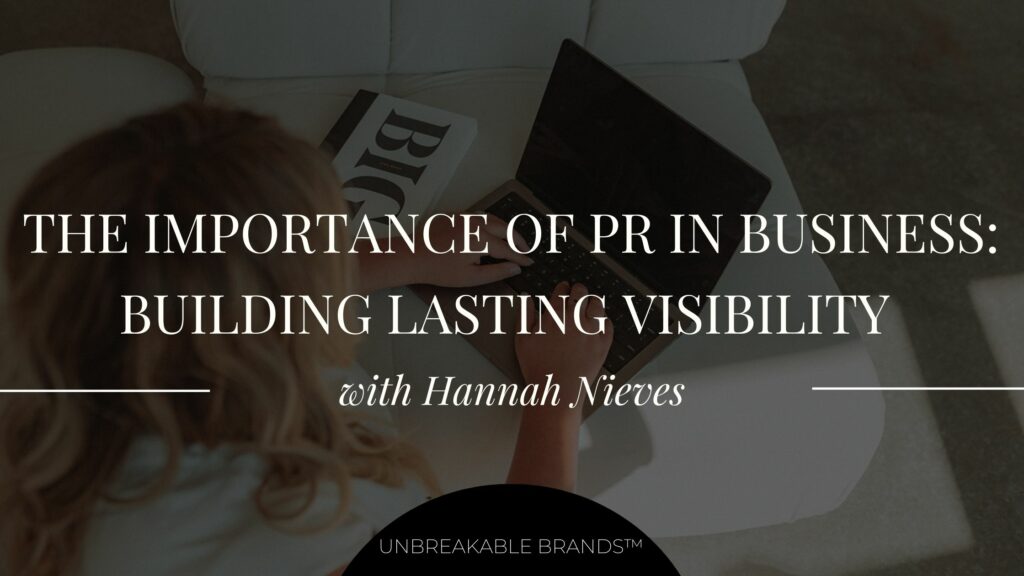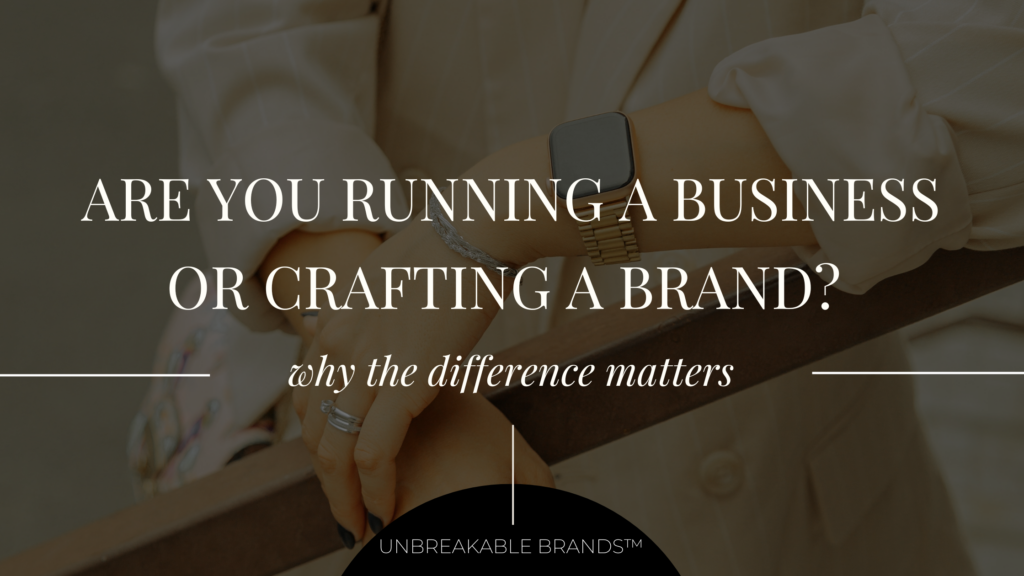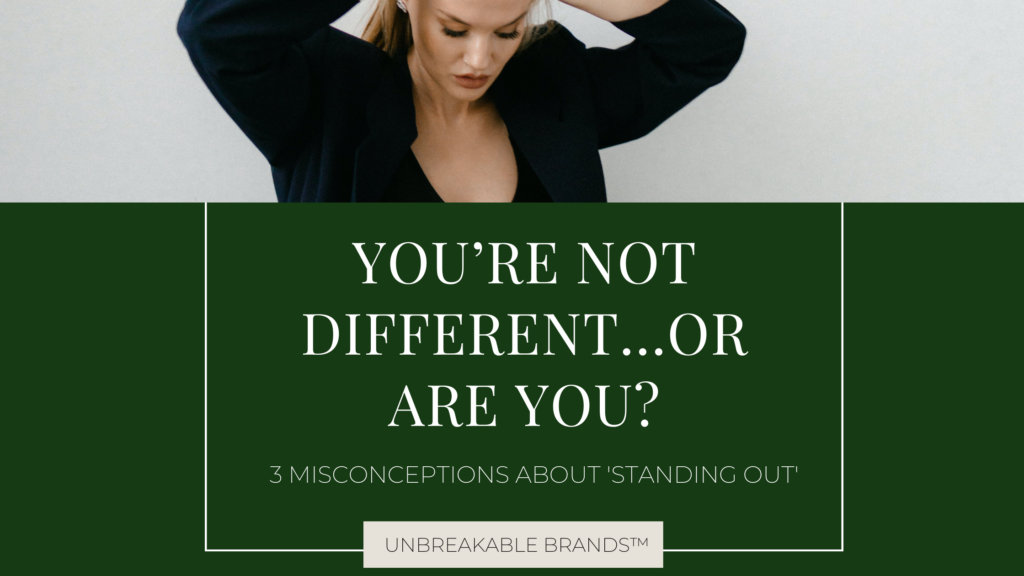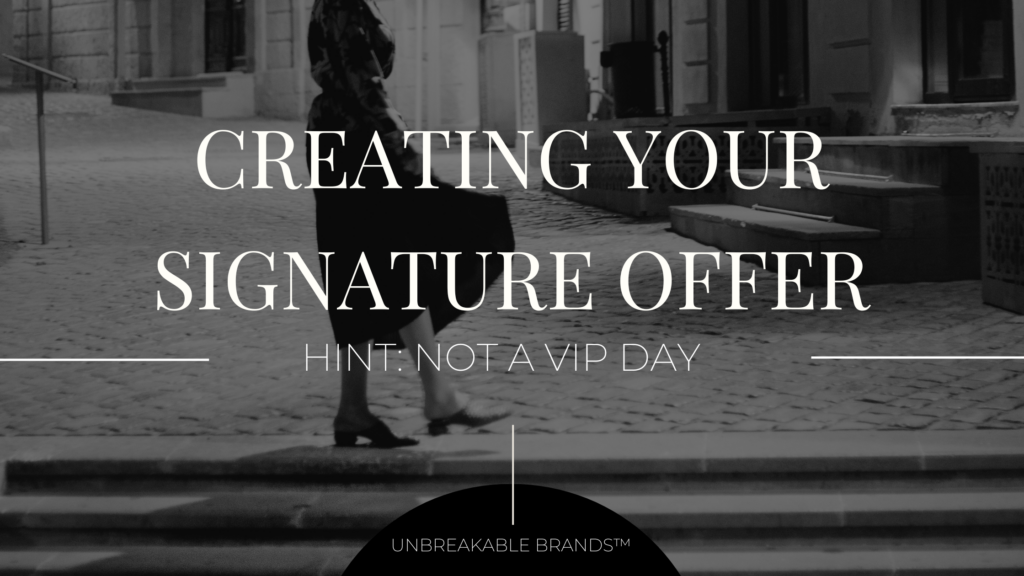Hannah Nieves is a dynamic and visionary entrepreneur, leading a revolution in the way women work and live.
As the Founder of HN Haus, a community for 6 to 7-figure founders, This Hudson Studio, a creative rental studio, This Hudson Farm, a Hudson Valley-based family farm celebrating living beautifully, and her newest endeavor, The Haus Social Club, an exclusive network for affluent women founders, she is dedicated to empowering entrepreneurs to create impactful businesses while achieving a balanced and fulfilling lifestyle. She is truly a multidisciplinary founder who has built a collection of brands centered around the concept of redefining the way we work and live.
Welcome Hannah
You have to make sure that you’re building in time in your calendar, otherwise, it doesn’t happen.
Hannah Nieves – Serial Entrepreneur and Founder of the HN Brand Portfolio: A collection of brands dedicated to redefining the way we live and work
Here’s what you can expect to hear in this episode:
- Hannah’s story of being a serial entrepreneur
- What PR is and the different types of content we can use
- Where to begin and how to pitch yourself
- Using AI while keeping brand integrity
- How she manages running multiple businesses
Resources Mentioned In
This Episode
What is your story of how you got started?
When I first started these companies, I didn’t expect that it was going to be, what I joke are the 59 companies, but it really feels that way. I first started because I actually went into burnout.
I had extensive corporate experience, climbed the ranks there, and loved what I did, but I just kept getting into the cycle of burnout. And I always knew that entrepreneurship was gonna be something like down the line, what it looked like.
And then I went into the hospital for burnout in the summer of 2019. And kind of short story here, I ended up not being able to eat anything besides bone broth and water, I kid you not, for a period of three-ish weeks. I had really bad stomach issues.
I had to go through this whole process of learning how to eat again because I started to experience this really bad relationship with food. So that was the kickstart to everything.
And I realized, I was like, wait, I actually don’t know if I wanna do this for the next 50 years, working in this corporate environment. So I started exploring, I took a course, I started exploring entrepreneurship as a whole, and then I just started to use my skillset and start to support other founders.
And then here we are, fast forward to where we are now, now we have our 59 brands, but it really has stayed, really grounded into how we started, supporting women founders and also supporting them with their companies so they can live a more fulfilling life.
And it’s so cool to see how that’s manifested into physical spaces, digital spaces, and app, just like the whole nine. And that’s a little bit about me.
Can you break down what exactly is PR and address some of the myths around it?
So everyone is ready for PR and you’re probably already doing elements of what we call PR without you even realizing, right? Because a lot of people think that PR is really reserved for celebrities or you have to be a tastemaker, influencer, or whatever it is.
But when you really think about PR in its truest form, it’s that communication between you and your clientele and it’s that relationship that you’re building and doing small things like responding to testimonials or responding to comments on your Instagram.
You’re creating this perception of your brand, and that goes back to how you position, which is ultimately PR. So, as far as actually starting to implement these things, you’re never too early or new to start the process. I was going through my images on my phone, and I was going back to like my first Business Insider article, which was almost four years ago at this point, and I was six months into the business, so I was still relatively new to launching this business.
I don’t even think I had a website at the point at that time either. It was just linked to a LinkedIn profile and Instagram. And it just goes to show you that you don’t have to have every single thing perfect and methodically planned out to actually do it.
You have to have a really strong storyline and it has to resonate with what they’re looking for. So I highly recommend, if it’s more of “I’m not sure if I’m ready,” you’re ready, right? Now it’s just getting you out there.
There is a time commitment too. You have to make sure that you’re kind of building in time in your calendar, otherwise, it doesn’t happen. So whether it’s 15 minutes a week or just allocating that time for yourself as a CEO more until you can outsource it, I think that’s the best way to start to build it in because it’s like a habit at the end of the day.
What are the different types of content that we can actually use and how do we decide what to focus on?
When you think about your owned content here, and I want to say this with quotations, right, because we don’t technically own social media, but when you think about owned, think about it as you are owning the narrative of what’s getting put out.
So your social platforms, your website copy, your blog, your newsletter, your LinkedIn articles, and things like that, these are the different pieces of content that you own in the marketplace. And this is where you can create that perception and that position of your brand.
When you think about earned media, earned media could be you’re getting featured in Business Insider or getting featured in a publication or going on a podcast interview. So think about earned as more of like the free tools.
And then you have your paid media, which that could be influencer marketing. It could be paid advertorials and things like that, which if you’re in a service-based business, you might not necessarily have to do too much outside of the ads.
If you’re in a product-based business, content creator marketing is going to be key for growth. I look at how all these different types of media work together to ultimately drive the communication between you and your ideal client at the end of the day.
When it comes to how to decide, I would say focus on the owned first of really dominating the platforms that you’re on. And one of the things too, I always kind of take as a very simplified approach. You don’t need to be everywhere to be successful at the end of the day.
But when it comes to owned media, really dominating your own platforms, optimizing your own visibility. So making sure that your LinkedIn and your Instagram and your social platforms are updated, making sure if you have a website that it matches the positioning of how you want your brand to be positioned online and things like that.
So I would say start with owned, make sure that foundation is really strong and then start to enter the earned space. I always say podcasting is one of the best ways to build connections, collaborations, so whether you start your own podcast, I actually went that route when I first started or you, you know, get another people’s podcast and things like that.
I started my podcast in the way beginning of my business journey and for most people, they’d be thinking, well, you have nothing to show, right? But I thought of it as, hey, you know what? This is gonna be a great way for me to build connections, make friends, expand my brand, and we started it from the beginning and it’s done so many things for our brand over the last few years from just having our own podcast.
So starting with that and then you can use different types of platforms out there for more traditional media, like you’re Forbes, you’re entrepreneur, you’re Insider and things like that.
It’s also so helpful too with podcasting. I think there’s just so many benefits, like SEO, your blog, and also when you’re recording on video, you can repurpose that to YouTube, to TikTok, Instagram, whatever.
So there’s so many uses when you have a podcast, but it just also opens up so many doors too. Even for me as well, just having the opportunity to do collaborations with other people or people hearing you on a podcast, it really, really is so powerful.
Holding the mic and being the quote-unquote expert, the fact of you facilitating the conversation, I think, is equally of value, and people remember your name for that.
Where should people begin if they maybe don’t have a huge PR budget?
So there’s easy tools outside of, once you’ve done and optimized your platforms, like your LinkedIn, your social platforms, etc, and then now you’re starting to want to pitch yourself. So there’s tons of free and paid tools out there.
If you are not wanting to be one that builds a whole media list and builds a contact list and pitches people individually, I would definitely recommend easy tools like Help a Reporter Out, which I know that they just launched a new platform as well which is a paid platform to be on.
And there are tons of these types of tools out there that allow you to source and basically see what writers are looking for. So if they’re looking for a specific type of source for their piece, they’ll go on these platforms and they will try to source their content and their interviews.
So that’s an easy way if you’re trying to bootstrap your own PR to start with. It does take a little bit of time though, monitor the platforms consistently, and you have to be on them. But it’s the trade-off that’s there, because it allows you to practice your skill set of actually crafting a pitch and articulating yourself and putting your brand out there.
And then from there, that’s when you learn the skill set to then be able to go and curate your own media list and conduct your own outreach. And I say media list and pitches, but I don’t want anyone to get intimidated by this extremely formal process, right?
Some of the best outreach can just be over an Instagram DM, you know, of a relationship that you’re building, or it can be a very casual email. It doesn’t need to be this formal essay, which I think a lot of people also get confused when they think of PR, because they think that it needs to be this like super strategic methodical way, but it really is just building authentic connections and relationships.
Is it better to pitch yourself as an individual (personal brand) or as a business?
I think it depends. Because I know at least, in the last few years with the rise of like the coaching industry, specifically I’m just gonna use a coaching industry, that has been one where, especially if you’re in more of like a business coaching realm and that’s like your industry type, I do know that it can get a little bit hard, right?
Because there’s so many people who are competing against the same thing. So that’s one I’ve definitely noticed. If you are, you know, a true and true business coach or business consultant, like what’s your angle? What’s your thread? Like how do you do things differently?
The other key area that I’ve also noticed if anyone here that’s listening is in the health industry or health and wellness industry. That’s another one where they are very strict, for large outlets that is, on who they feature. Not to say that if you’re a health coach you cannot get featured. That’s not the case at all.
However, if you are talking about any type of medical related content, they will typically have to marry your quote with say an MD or example, a dietician or whatever. So that’s something to keep in mind if you’re in the health and wellness industry that could be powerful if you are pitching is to also like work coincide with maybe an MD or someone along those lines in conjunction with you because you can have different types of viewpoints for the same type of piece. So that’s another one I’ve noticed for sure.
What is your opinion on AI when it comes to building a brand and brand integrity?
Well, with AI in general, because it’s so new, legislation and the way that companies are using it is still trying to catch up with the speed of technology, which is really fast. So when we think about artificial intelligence, we think about the different types of tools out there.
A lot of the business owners, we use our ChatGPTs and we use our different AI tools to streamline the process. When I was first kind of looking into our brands, I was a little bit skeptical, not going to lie. I think because I’m also a writer myself. So I’m thinking about, okay, well, how is this actually going to understand me and my brain?
And once we started to figure out how we can connect the pieces together, how we can train our
ChatGPT in an effective way, where it really understands us, all the pieces came together.
And when it comes to integrity, I think it really comes down to how you actually are using the tools.
So if you’re using ChatGPT where you’re asking questions, hoping it’s going to tell you what to do, we almost need to reframe the mindset around it and say, how are we having a conversation with our ChatGPT, with our research assistants that we create and whatnot?
Because if you’re looking for a specific output, it’s going to rely on a specific input. And I think that’s where a lot of people get really tripped up is because they’re just putting content in there and saying, okay, I want you to write a 500-word blog post about this topic.
And it comes out sounding nothing like them. But you have to take that initial step and that due diligence to really set things up for success. Because that’s where you’ll get the miscommunication – content doesn’t sound like you and then that’s when you start to fall out of alignment with you know brand integrity.
And that’s like the biggest piece too, and that’s why we included that in Camp AI specifically because first off, like I said, there’s so many changes and this is so new to so many people. But I mentioned this in Camp AI, but we as users have a responsibility on how we’re using the content and things like that.
If you are actively sourcing content that you know could be plagiarized or you’re not double checking or things like that, that’s where it really is gonna impact your brand integrity. And on the flip side, using these tools and you haven’t protected your brand, you haven’t gotten a trademark or protect your brand legally, you’re just opening up the doors to so many issues on that end, but it’s really just a shift in mindset on how we use it.
And I found for us, when we were first resisting it, I said, wait a second, we can actually save time, we can actually save money and also open up brain space for our team, right?
They can be more efficient. And I think that was like the clicking point for me where I said okay like this is how we’re gonna use this for a company and it’s been a game changer since we’ve implemented it.
How do you actually handle and manage running so many different businesses? Is it just because you are a manifesting generator?
Okay, so that was one thing that I was actually going to bring up because If anyone’s into human design if you’re listening to this or if you’re listening to this and have no idea what human design is, do yourself a favor go look it up. It is incredible.
I am a manifest generator which means that my energy will also flow into things that light me up and you know really excite me. Other profiles types are very singular or they might focus on one specific thing.
I would say being an MG has its pros and cons because yes, things can change. The con with that is that you need to really surround yourself with people that understand how you think because as a leader of our team, if you’re a team member working on this and the CEO is saying, okay, we’re gonna launch this new thing or we’re gonna let go of this, it can also be really intimidating to be around that energy as well.
So as far as how do I do it, lots of caffeine, that is for sure, but I think the biggest thing is I kind of shifted away from looking at it from, okay, yes, I have these 59 brands, I joke, but I look at them as product lines, right?
So I look at it as like I’m at the top of the pyramid feeding these product lines, but they’re all kind of working together for this one goal, one purpose, one mission, and that’s how everything is kind of tied together.
But as far as how we’ve got here and how I manage it, you know, I’ll be honest, there have been seasons where things have been great and I talk about there are seasons where I actually hated my business.
And throughout this process over the past few years, I realized, okay, like, this is where I want us to go, this is where I don’t want us to go, and which also meant that we had to simplify things down.
We’ve been, I would say 2023 has been a really interesting year because we’ve been a season of simplifying in so many areas – simplifying our offer suite down, simplifying our systems down, everything as a whole, because we’re working on an app and a new social club and a new community that’s launching and that has taken so much time and energy and resources.
Which feels really, really good, but I think the biggest thing, the only reason why we can even have this many product lines is because of the systems we have in our company, right? We would not be able to replicate and launch a 60 acre farm property that has so many different revenue streams, plus we have our community and agency if we did not have systems in place.
I stress that because it really is the backbone to your business. I started with nothing. I’m sure you did too, where you’re slowly building them up. That was the initial point. I would say too, just deep, deep clarity on the vision. I’m a very visual learner and also thinker.
I see like 20 steps ahead. I might not know all the steps to get there. I just got off a call before this call, too, where my team member is like, okay, great. I love how you see how these pieces are coming together. But what about these things? And she listed off 10 questions that were so finite that I was like, you know what? My brain doesn’t think like that.
I was like, I just see the end. So this is where your expertise comes in. So also finding people that can complement your skill set, mirror your skill set but complement your skill set is the key to growth.
Can you talk more about the seasons where you are feeling like you don’t like your business anymore?
I went through a situation where I realized that I loved the consulting more than I loved doing the done for you work. And that’s what we were known for. So it was really hard to say, you know what? I don’t want the 30 person agency myself, personally.
Do I have clients that do? Absolutely, but for me, no, that’s not what I want. I actually want to keep this at this rate so I can focus on these things as well. And that was a really, really interesting time in the business because we had just hired four full-time team members.
When you think about salaries there, we’re growing really fast, we’re getting these really high retainers, and I was making the most amount of money ever and to think of, oh, I actually don’t like this. I almost thought it was selfish at the time.
I almost thought like, well, how could you say you don’t like it? Like, look at what you’ve built. But I think it just goes to show though, if you really are out of alignment with what you’re doing, your body will physically show you, okay, this is not what you’re supposed to be doing.
And I try to ignore it. And I will tell you it’s happened several more times since then in different ways. But like I always say that is your internal compass as a founder.
And a lot of the times, especially with the high level founders that we work with, if you are out of alignment and you do not trust your intuition, and you are just focusing on the strategy and what other people are saying that you need to do, you’re gonna build yourself a digital prison and you’re not gonna like it after all.
I think that’s the most beautiful thing as well. And one of the indicators, could be a physical body reaction, but it could also be to the types of clients that you’re working with. Where you might be signing on a client and there’s that red flag that you ignored and it’s happened to me plenty of times.
And then you’re sitting there thinking, okay, well, this is why I told myself I wasn’t going to do this again. And it’s just like, you have to learn to trust yourself at the end of the day.
It can be really hard, at least for me, the hardest part of making any type of shift where I had to let go of things was because it usually would trigger a scarcity response.
From someone that has healed and mended my relationship with money and growing up in a situation where money wasn’t there, I always felt like I need to be grateful when I had it and not try to be super risky.
But now I learn that you know what, actually if you keep holding onto it and you don’t like what you’re doing, the universe, God, or whatever you wanna believe in is actually gonna push you in that direction. And that could be clients coming off your roster.
I’ve seen this happen to clients I’m working with too. Clients coming off your roster, or things happen, or whatever it is. And the universe is literally saying, no, you need to go in this direction, and I’m going to open up the doors whether you really like it or not.
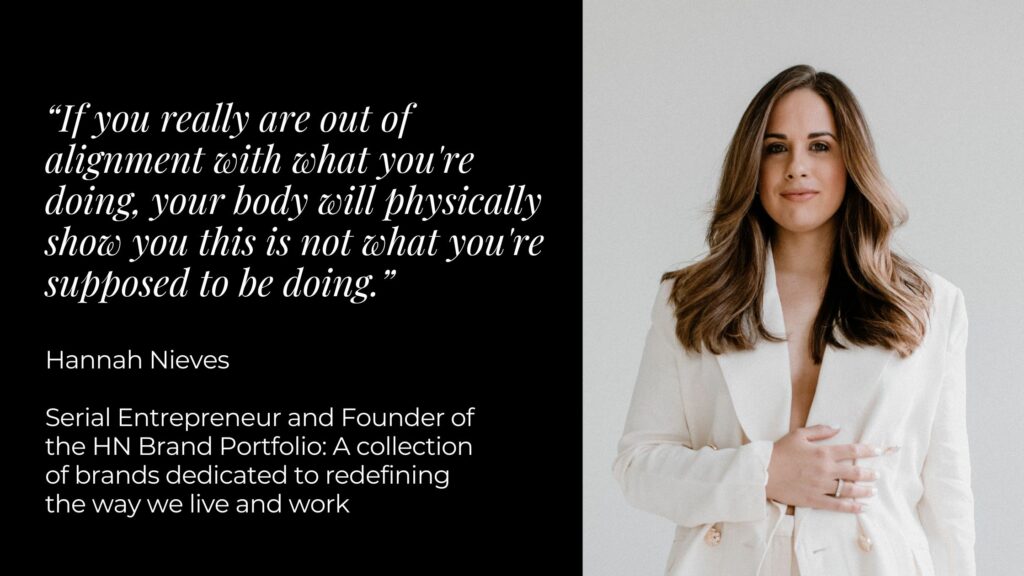
Speaker bio
Hannah Nieves is a dynamic and visionary founder on a mission to redefine the way we work and live.
As the Founder of HN Haus, a community for 6 to 7-figure founders, This Hudson Studio, a creative rental studio, This Hudson Farm, a Hudson Valley-based family farm that celebrates living beautifully, and her newest endeavor, Maison, a private network for
high net worth founders and change makers she is inspiring innovation for women in business.
With her unwavering passion for empowering women, Hannah inspires and guides founders to create powerful businesses while achieving a balanced and fulfilling lifestyle. Her multifaceted portfolio of brands reflects her commitment to innovation, community-building, and genuine connections. Through her platforms and ventures, Hannah Nieves is transforming the entrepreneurial landscape, one visionary at a time.
Hannah’s work extends beyond her brands as she amplifies the voices of multidisciplinary founders and luxury brands through her highly regarded podcast, the HN Haus Podcast.
With a background in luxury branding, marketing, and PR, Hannah has been featured in publications such as Forbes, Nasdaq, In Style, Hudson Valley Magazine, and Business Insider. She has also shared her expertise as a speaker at institutions like Northeastern University, Nasdaq Entrepreneurial Center, and the Entrepreneur’s Organization.
Hannah’s career journey began in the Capital Markets division of Cushman & Wakefield, where she marketed and sold significant real estate assets in Manhattan, underwriting a portfolio worth $525,000,000. She later served as the Director of Marketing and Trade Development for California Closets, managing a multimillion-dollar marketing budget and collaborating with prominent real estate developers nationwide.
With a diverse client roster that spans from established brands to $700 million dollar companies, Hannah has demonstrated her expertise in guiding other visionaries and companies to create bottom-line results and scale sustainably.
Through her unique approach, she not only empowers founders to achieve remarkable growth but also emphasizes the importance of integrating balance and harmony into their lifestyles. Hannah’s track record of success speaks for itself – an innovator at the intersection of business and lifestyle.

